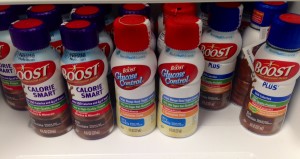
I think I speak for most people when I say, receiving the right amount of every single nutrient each day can be very difficult. Some struggle eating vegetables, while others may struggle incorporating enough protein into their diet. Each food group provides nutrients essential for our body to function at it’s maximum potential. Not receiving proper amounts of these nutrients is harmful to our health and that’s where supplements come into play.
Supplements are products made to basically fill the deficits in our diets. They come in many forms; powders, pills, tablets, and bars. Supplements are made to contain the daily amount (sometimes more) of the nutrient being advertised. Sounds great, right? Not so fast.
Dietary supplements were once regulated strictly by the Food and Drug Administration (FDA), today they are not. Unlike drugs, supplements are not required to undergo tests that prove them safe and effective. Supplements are basically treated as a type of food, and are considered to be safe unless proven otherwise. Manufacturers are not required to prove that their advertisements are accurate or truthful to the FDA’s standards either. The FDA basically has no say in production of the supplement until after it hits the market, but even then, the FDA doesn’t give a strict revision. Supplement firms must report any drastic effects provided by a supplement, then the FDA may choose to act upon removal of the supplement.
In recent years, there have been times where ingredients are slipped into products that are mislabeled. Most often times these ingredients have no harmful effects, but there have been cases where heart attack and strokes have occurred due to food-drug interactions, that users were unaware of.
There are certain groups of people who do need to take supplements, though. Pregnant women need to focus on a folate supplement, while vegetarians may need to take a Vitamin D and B12 supplements. Athletes have also seen some benefits from using supplements such as protein, that can aid in muscle development and recovery. Meal replacement shakes, such as Boost and Ensure, provide a variety of nutrients with convenience. These are very beneficial when patients are diagnosed with an illness or health defect that doesn’t allow them to eat real food adequately. These meal replacement shake are found commonly throughout nursing homes and clinics because of the wide array of patients in need of these products.
Supplements are usually self-prescribed, meaning we pick and choose when we need them and take them, which causes a delay in reporting side effects and different reactions. You should consult with a health professional before taking a dietary supplement.
Here’s a list of the 5 most common supplements:
- Probiotics 2. Protein 3. Omega 3’s (fish oil) 4. Whole-Food concentrate 5. Multivitamin
It is important to educate yourself before taking a supplement because you need to know what you’re really buying. Supplements can be beneficial, but they can also be a waste of money. Don’t waste your time unless you truly need them. Nothing beats a diet rich in nutrient-dense whole foods.
-Written by Braden Carmody, SDSU Dietetic Student

